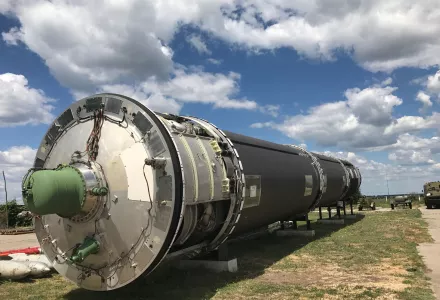
Nuclear Proliferation International History Project
Abstract
Nuclear deterrence thinking has become so entrenched in US academic and policy circles that it only seems natural that other states regard nuclear weapons in the same terms. Yet is it necessarily so? In this article, Polina Sinovets and Mariana Budjeryn examine the case of Ukraine to understand how its leaders interpreted the value of the nuclear weapons deployed on Ukrainian territory in 1990–1994.
Ukraine became the host of world's third largest nuclear arsenal following the Soviet collapse in 1991. Its pre-independence intention to rid itself of nuclear weapons soon gave way to a more nuanced nuclear stance that developed into a claim of rightful nuclear "ownership." Western security theories and practices led US leaders to assume that Ukraine sought to keep nuclear weapons as a deterrent against the growing Russian threat. Drawing on Ukrainian and US archival sources and interviews, Sinovets and Budjeryn reconstruct Ukrainian deliberations about the meaning of their nuclear inheritance and find that deterrence thinking was conspicuously lacking. Sinovets and Budjeryn's investigation demonstrates that deterrence thinking, far from being a "natural" or systemically determined way of regarding nuclear weapons, is a socially constructed and historically contingent set of concepts and practices.
Sinovets, Polina and Mariana Budjeryn. “Interpreting the Bomb: Ownership and Deterrence in Ukraine's Nuclear Discourse.” Woodrow Wilson International Center for Scholars, December 2017
The full text of this publication is available via Woodrow Wilson International Center for Scholars.





